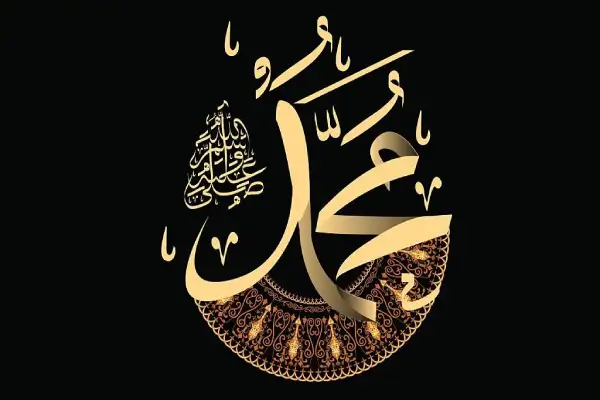What Is Islam? (A Complete Guide)
Islam, derived from the Arabic word “salam” meaning peace, is a comprehensive way of life for Muslims. It encompasses various aspects of human existence, including spirituality, morality, social interactions, and legal principles. Islam is based on the teachings of the Prophet Muhammad, who is considered the final Prophet in a long line of messengers sent by God.
What is Islam?
Islam is one of the major world religions, with over 1.8 billion followers globally. This article provides an overview of Islam, exploring its historical background, core beliefs and practices, Islamic law, worship, festivals, and its relationship with women, peace, and other religions.
Muslims believe that Islam is the complete and universal version of a primordial faith that was revealed many times through earlier prophets such as Adam (believed to be the first man), Abraham, Moses, and Jesus, among others
[source]
Historical Background
Islam emerged in the early 7th century in Mecca, modern-day Saudi Arabia. The Prophet Muhammad received revelations from God through the angel Gabriel, which were later compiled into the holy book of Islam, the Quran. Muhammad’s teachings gained significant followers, leading to the establishment of a unified Islamic state in Medina. This marked the beginning of the Islamic era and the rapid spread of Islam across the Arabian Peninsula and beyond.
Core Beliefs and Practices Of Islam
Central to the Islamic faith are the beliefs in the oneness of God (Allah) and the prophethood of Muhammad. Muslims believe that Allah is the only deity worthy of worship and that Muhammad is the final seal of all prophets. Muslims strive to lead a righteous life by following the teachings of the Quran and the Hadith (sayings and actions of the Prophet Muhammad).
The Five Pillars of Islam
The Five Pillars of Islam are fundamental acts of worship that provide a framework for Muslim life. They include Shahada (faith), Salah (prayer), Zakat (charity), Sawm (fasting), and Hajj (pilgrimage). These pillars foster spiritual growth, encourage social responsibility, and promote discipline and devotion within the Muslim community.
The Quran
The Quran, believed by Muslims to be the literal word of God, is the primary source of guidance in Islam. It covers a wide range of topics, including theology, morality, laws, and stories of prophets. The Quran serves as a source of inspiration, providing Muslims with a moral compass and a comprehensive guide for leading a righteous life.
Prophets in Islam
Islam recognizes numerous prophets, including Adam, Noah, Abraham, Moses, Jesus, and Muhammad. Muslims believe that these prophets were chosen by God to convey His message to humanity. They are highly respected figures in Islamic tradition, and their stories serve as lessons of faith, perseverance, and moral guidance.
READ NEXT: Ramadan Dua Guide. Ramadan Prayers With Meanings
Islamic Law and Jurisprudence
Islamic law, known as Sharia, is derived from the Quran, the Hadith, and scholarly interpretations. It provides a comprehensive legal framework that governs various aspects of life, including family matters, business transactions, and criminal justice. Sharia aims to promote justice, fairness, and the well-being of individuals and society as a whole.
Islamic Worship
Worship in Islam involves regular prayers, which are performed five times a day facing the Kaaba in Mecca. Muslims also engage in acts of charity, strive for personal purification, and make supplications to seek blessings from God. Mosques serve as communal places of worship, where Muslims gather for congregational prayers and engage in religious activities.
READ NEXT: Who Is Allah?
Islamic Festivals and Celebrations
Islam has two major festivals: Eid al-Fitr and Eid al-Adha. Eid al-Fitr marks the end of Ramadan, the month of fasting, and is a time of celebration and gratitude. Eid al-Adha commemorates the willingness of Abraham to sacrifice his son and signifies the importance of faith and obedience.
Islam and Women
The role of women in Islam is often misunderstood. Islam promotes gender equality and recognizes the rights and responsibilities of women in various spheres of life. While cultural practices and misinterpretations may lead to gender disparities, Islam emphasizes the dignity, education, and well-being of women.
Islam and Peace
Islam is a religion of peace, and the word “Islam” itself reflects the concept of peace. Muslims are encouraged to promote peace, justice, and harmony in personal and societal interactions. However, Islam also recognizes the need for self-defense and the protection of human rights in the face of oppression or injustice.
Islam and Other Religions
Islam acknowledges the presence of other religions and advocates for respectful coexistence. Muslims are encouraged to engage in dialogue and demonstrate tolerance towards people of different faiths. The Quran recognizes the shared origins and commonalities among different religious communities.
READ NEXT: What Is A Mosque?
Misconceptions about Islam
Islam has often been subject to misconceptions and stereotypes. Many of these misconceptions stem from misinformation, cultural biases, or the actions of a few individuals. It is essential to separate the true teachings of Islam from misunderstandings and engage in informed conversations to foster understanding and mutual respect.
Conclusion
In conclusion, Islam is a vibrant and diverse religion with a rich history and a comprehensive set of beliefs and practices. It provides guidance on leading a righteous life, fostering peace and justice, and establishing strong communal bonds. Understanding Islam requires looking beyond stereotypes and engaging in open-minded conversations to build bridges of understanding and harmony.
READ NEXT: Names Of The Wives Of Prophet Muhammad ﷺ
FAQs
Is Islam a violent religion?
Islam promotes peace and condemns violence. Acts of violence by a few individuals should not be attributed to religion as a whole.
Are women oppressed in Islam?
Islam advocates for the rights and dignity of women. Cultural practices and misinterpretations may lead to gender disparities, but they are not intrinsic to the teachings of Islam.
What is the significance of the Kaaba in Islam?
The Kaaba, located in Mecca, is considered the holiest site in Islam. It serves as the direction of prayer (qibla) for Muslims worldwide and holds immense religious significance.
Are Muslims allowed to have friendships with people of other faiths?
Yes, Islam encourages Muslims to build meaningful relationships with people of different faiths based on respect, kindness, and mutual understanding.
Does Islam reject science?
No, Islam embraces knowledge and encourages scientific exploration. Many Muslim scholars have made significant contributions to various fields of science throughout history.

